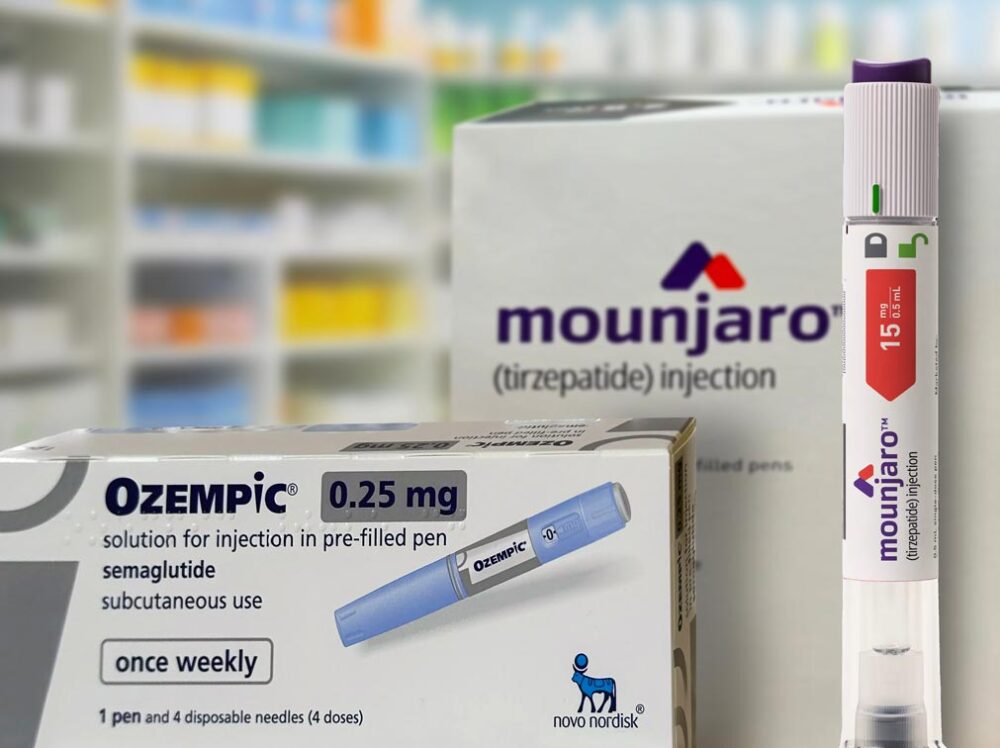Advertisment
Semaglutide and tirzepatide treatment leads to weight loss in type 1 diabetes

Treatment with semaglutide and tirzepatide led to significant weight loss and improved blood sugar control in overweight or obese patients with type 1 diabetes (T1D).
Researchers reported this finding on Sept. 13, 2024 at the annual meeting of the European Association for the Study of Diabetes (EASD).
The two drugs are FDA-approved for the treatment of type 2 diabetes and for weight loss. They are also being widely used off-label to treat overweight or obesity in patients with type 1 diabetes.
“Some of the mechanisms through which semaglutide and tirzepatide lower blood sugar in type 2 diabetes are also likely to be relevant in type 1 diabetes,” said study leader Janet Snell-Bergeon, MPH, PhD, of the University of Colorado Anschutz Medical Campus, Aurora, Colorado, USA. “In addition, an increasing number of adults with type 1 diabetes are living with overweight or obesity. These conditions can lead to insulin resistance, which makes it more difficult for people who have type 1 diabetes to control their blood sugar. Therefore, these drugs may be particularly beneficial for these patients,” she added.
The investigators evaluated retrospectively medical charts of 100 adults diagnosed with T1D, 50 of whom had been prescribed semaglutide and 50 of whom had been prescribed tirzepatide. The majority of the subjects (84% of those prescribed semaglutide and 100% of those prescribed tirzepatide) were also overweight or obese.
The subjects were matched with 50 controls by age, sex, diabetes duration, body mass index (BMI) and glycated haemoglobin (HbA1c). The controls had not been prescribed a weight loss drug treatment.
The investigators gathered data generated at baseline before treatment began and up to one year later.
For those who had been drug treated and for the controls, respectively, mean age was 40 vs. 41 years, sex was 71 vs. 72 % female, diabetes duration was 26 vs. 27 years, BMI was 34kg/m2 vs. 34kg/m2 and HbA1c was 7.3% vs 7.3%.
Insulin pumps were used by 75% of those receiving the study drugs and 80% of controls. The rest of the subjects injected insulin multiple times daily.
After 12 months, there were statistically significant larger average declines in weight in both of the drug-treated groups when compared to controls, who gained a small amount of weight.
The patients treated with tirzepatide lost more than twice as much weight as those taking semaglutide.
The subjects treated with semaglutide lost 9.1% of their body weight on average over 12 months, equating to 19.2lb (8.7kg). Their BMI decreased by 3kg/m2, on average, over 12 months.
The subjects treated with tirzepatide lost 21.4% of their body weight, on average, over 12 months, equating to 49.4lb (22.4kg). Their BMI decreased by 7.5kg/m2, on average, after 12 months.
Reduction in HbA1c was greater in the semaglutide (-0.42%) and tirzepatide (-0.62%) treated groups than in controls (0.02%), but there was no significant comparative difference between the tirzepatide group and the semaglutide group
There was a statistically insignificant tendency toward greater change in BMI, weight, and HbA1c in the insulin pump users vs. those on multiple daily injections.
There were no reported hospitalizations from severe hypoglycemia or ketosis.
The authors concluded, “In this real-world, off-label study of use of semaglutide and tirzepatide in OW/OB [overweight/obese] adults with T1D, we observed weight loss of 21% and 9% in the tirzepatide and semaglutide users, respectively, with similar improved glucose control over up to a year of follow-up. There was a tendency towards higher changes in BMI, weight and HbA1c in the patients using an insulin pump. As off-label use of these drugs is increasing in patients with T1D, larger, prospective trials are needed to evaluate their efficacy and safety in OW/OB patients with T1D on different therapeutic regimens.”
Dr Snell-Bergeon added, “A growing number of individuals with type 1 diabetes are living with obesity, partly because the intensive insulin therapy that is required to manage blood sugar levels can cause weight gain. Semaglutide and tirzepatide can lead to significant weight loss in these patients and improve their blood sugar levels, which could reduce their risk of complications of obesity and diabetes, including heart disease and eye, nerve and kidney problems.”





